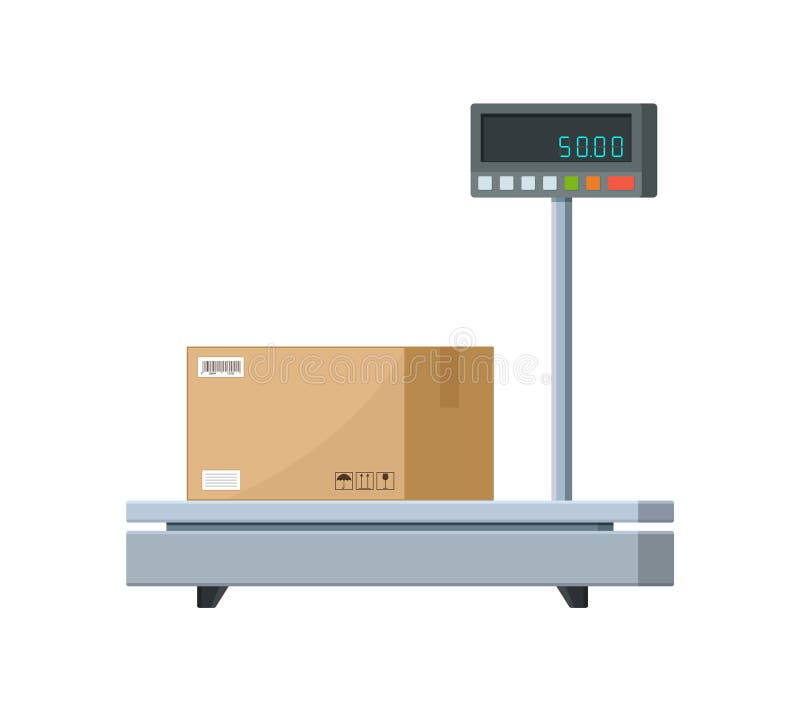Just How Commercial Scales Work: An Extensive Introduction for New Users
Comprehending the mechanics behind industrial ranges is important for brand-new users who desire to ensure accuracy in their measurements. These devices rely on lots cells and pressure scale innovation to transform weight right into a quantifiable layout, but the nuances of their operation prolong beyond simple functionality. From the various kinds available to the crucial methods for appropriate usage and upkeep, each element plays a substantial function in accomplishing dependable results. As we check out these components, one should think about exactly how these elements interact to enhance efficiency in varied commercial applications.
Fundamentals of Industrial Scales
Industrial ranges are vital tools utilized throughout different sectors, consisting of manufacturing, logistics, and farming, to ensure accurate weight dimensions of heavy loads. The fundamental principle behind commercial scales involves the conversion of weight into a quantifiable type that can be presented digitally or analogically. These ranges employ numerous systems, such as load cells or mechanical levers, to determine the weight of objects placed upon them.

In addition to their dimension abilities, commercial scales are developed to hold up against rough environments, including robust construction that stands up to dust, moisture, and heavy impacts. Calibration and maintenance are vital to make certain accuracy, as also minor discrepancies can cause substantial economic ramifications. By understanding the basics of commercial scales, individuals can value their significance in different industrial applications.
Sorts Of Industrial Scales
Different kinds of industrial ranges cater to the varied demands of different industries, each designed to deal with certain considering tasks with accuracy and dependability. Amongst one of the most typical kinds are floor ranges, which are optimal for weighing cumbersome and heavy products. These ranges commonly feature huge systems and can accommodate palletized goods, making them crucial in stockrooms and shipping centers.
An additional kind is bench scales, which are typically used for smaller items in production and retail settings. They offer accurate measurements for items that call for precision, such as chemicals or parts in setting up lines (Industrial Scales). For mobile procedures, mobile ranges supply adaptability and simplicity of transport, suitable for fieldwork or short-term installations
In applications calling for high-capacity measurements, such as wholesale product handling, crane scales and tons cells are employed. These scales can measure tons suspended from a crane or other training device, making certain safety and security and accuracy during operations. Additionally, specialized ranges like checkweighers are utilized in production lines to maintain high quality control by guaranteeing that products meet weight requirements. Each kind of industrial scale plays a vital duty in enhancing operational performance and precision throughout different markets.
Exactly How Evaluating Systems Job
Considering systems are important elements that allow precise dimension of mass across various industrial scales. These mechanisms make use of numerous principles of physics and design to give specific weight readings, important for inventory management, top quality control, and conformity with governing requirements.
One common kind of considering system is the tons cell, which operates the principle of stress evaluates. check When a tons is applied, the tons cell deforms a little, generating an electric signal symmetrical to the weight. This signal is after that exchanged an understandable weight measurement by the scale's electronics.
One more extensively used mechanism is the mechanical balance, which employs a system of weights and bars. Industrial Scales. This technique relies on the concept of stability, where the weight of the object being gauged is balanced against known weights, permitting straight measurement
Additionally, pneumatically-driven and hydraulic ranges leverage liquid dynamics principles to measure weight. These systems use the pressure exerted by a tons to identify weight, offering high accuracy for substantial loads.
Correct Use Techniques
When making use of industrial ranges, sticking to proper use techniques is crucial hop over to here for making certain precise measurements and keeping devices stability. It is crucial to select the proper scale for your specific application, as ranges vary in capability and accuracy.
Before evaluating, guarantee that the scale is put on a secure, level surface area devoid of disruptions or resonances. This will certainly assist to minimize mistakes triggered by exterior elements. Furthermore, adjust the scale according to the producer's specs before utilize, making certain that it is working correctly.
When placing products on the scale, distribute the weight evenly to stay clear of tipping or damaging the devices. Always allow the scale to support before tape-recording the weight, as fluctuations may occur during first placement. For bulk materials, make use of containers that are ideal for the range dimension to avoid overloading.
Additionally, avoid placing extremely hot or cool items directly on the scale, as temperature variations can impact precision. Finally, maintain the considering platform tidy and totally free of particles to avoid contamination and make sure trustworthy outcomes. By following these methods, users can optimize the performance and long life of their commercial scales.
Upkeep and Calibration Tips
Making sure the durability and precision of commercial scales calls for diligent upkeep and routine calibration. A precautionary maintenance routine is vital; it must include routine evaluations to determine deterioration, specifically on lots cells and various other delicate parts. On a regular basis cleaning up the scale's surface area and ensuring the bordering area is without debris will aid maintain its stability and performance.
Calibration is just as vital and need to be done at routine intervals or whenever the range experiences substantial adjustments in temperature level, humidity, or physical displacement. Utilize qualified calibration weights that are traceable to nationwide requirements for accuracy. Document each calibration session carefully to track performance gradually and identify any type of fads or recurring problems.
In addition, bear in mind the range's environment. Stay clear of putting it near sources of resonance, electromagnetic interference, or severe temperatures, as these aspects can negatively impact measurements. Lastly, train all operators on proper range use and Web Site upkeep methods to make certain consistent performance and accuracy. By sticking to these maintenance and calibration suggestions, individuals can improve the integrity of their industrial scales, making certain ideal procedure in any kind of setting.
Verdict

Understanding the technicians behind industrial ranges is critical for brand-new customers that want to ensure accuracy in their measurements.Industrial scales are crucial devices utilized throughout various industries, consisting of production, logistics, and agriculture, to ensure precise weight dimensions of heavy loads. The essential concept behind industrial ranges entails the conversion of weight right into a quantifiable type that can be shown digitally or analogically. By understanding the basics of industrial scales, customers can value their value in numerous commercial applications.
In verdict, recognizing the procedure and maintenance of commercial scales is important for making sure accurate weight measurements in various applications. (Industrial Scales)